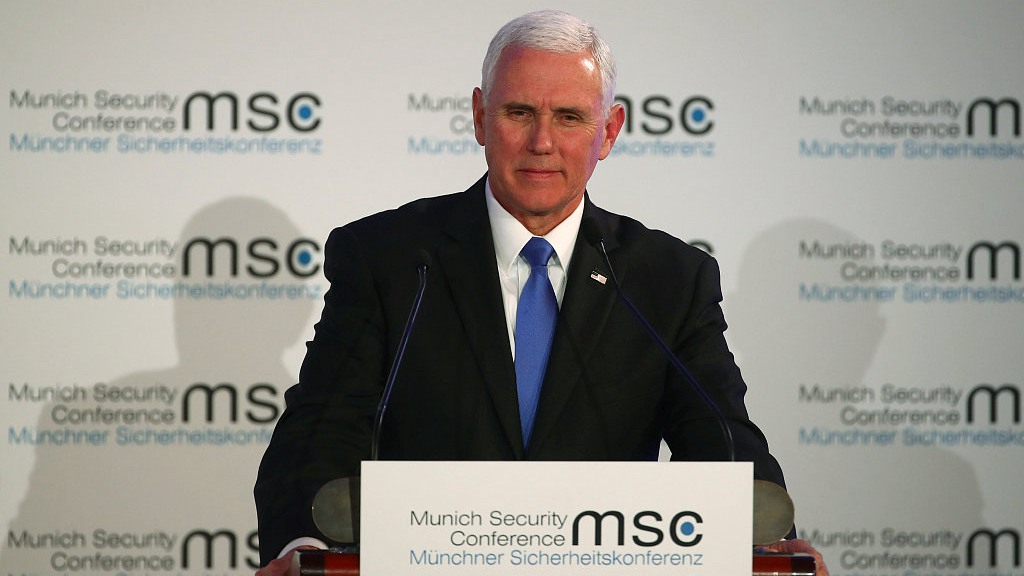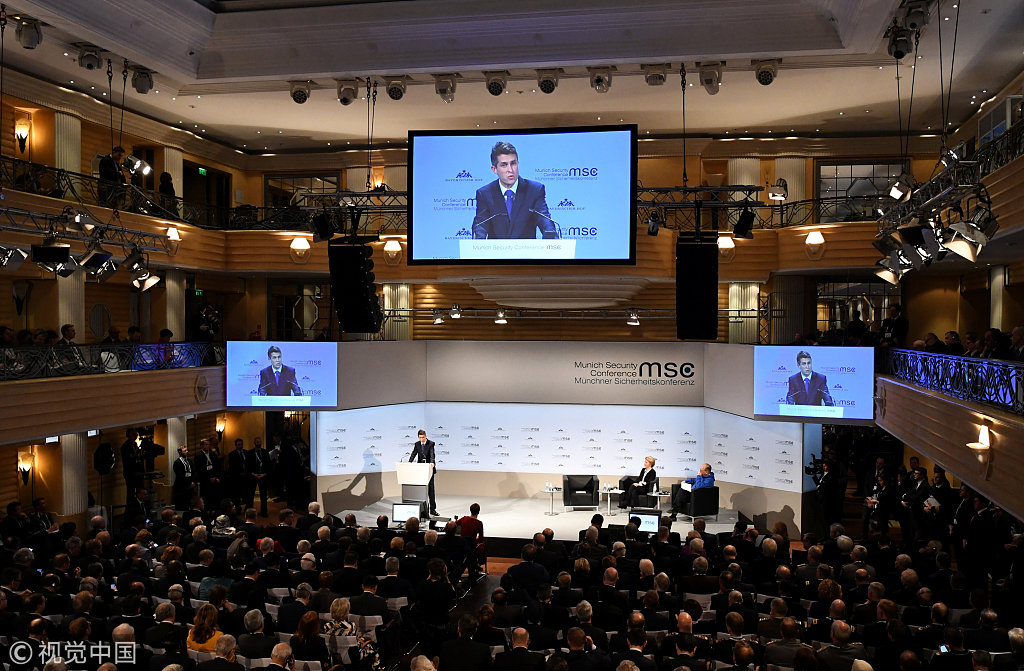
Opinion
18:29, 16-Feb-2019
Trump's shadow over European security
Fraser Cameron

Editor's note: Fraser Cameron is a senior advisor to the European Policy Centre. The article reflects the author's opinion, and not necessarily the views of CGTN.
The Munich Security Conference used to be a reaffirmation of transatlantic ties. But with Donald Trump in the White House, there are growing tensions across the Atlantic ranging from differences over trade, the Iran nuclear deal, climate change, NATO defense spending and nuclear proliferation.
With the resignation of the former Pentagon chief, Jim Mattis, Europe now has no friends in the Trump administration. U.S. Secretary of State, Mike Pompeo, has questioned the usefulness of multilateral institutions including the European Union (EU). Vice President Mike Pence, who spoke at Munich Security Conference, and National Security Advisor, John Bolton, simply rehash Trump's "America first" nationalist rhetoric. At the same time, the U.S. is now demanding that Europe sides with Washington in its disputes with Beijing, especially on trade and technology.
This should be the opportunity for the EU to stake out its own vision for European security. But the EU is burdened with a number of major problems. In six weeks the UK is set to leave the EU. British Prime Minister Theresa May has still not managed to secure parliamentary approval for her deal – although everyone knows that a no-deal Brexit would be disastrous for security cooperation.
In these circumstances, all eyes will be on Paris and Berlin but they remain far apart on how to deepen European integration including on security matters. French President Emmanuel Macron wants the EU to develop "strategic autonomy" to be able to act if necessary without the U.S. His talk of a European army has irritated Washington.

British Defense Secretary Gavin Williamson speaks during the annual Munich Security Conference in Munich, Germany, February 15, 2019. /VCG Photo
British Defense Secretary Gavin Williamson speaks during the annual Munich Security Conference in Munich, Germany, February 15, 2019. /VCG Photo
Germany is more cautious preferring checkbook diplomacy to hard power. Poland and other East European countries are also skeptical of an enhanced EU defense role, fearing that it might weaken the U.S. commitment to NATO. This commitment was called "obsolete" by Trump during the presidential campaign, and his constant demands that Europeans should pay more into Alliance coffers have cast some doubt on whether the U.S. would actually show up in a crisis.
Domestically, there are few stable governments in the EU as nearly all have been affected by the rise of populist forces. Although these forces may have peaked, there remain divisions throughout Europe on migration and the lack of solidarity in the migration crisis has left deep scars which also impact on security.
Hanging over the conference will be the troubled U.S.-China bilateral relationship. China is also sending a large delegation to Munich trying to deflect U.S.-led criticism that Huawei technology is a threat to the U.S. and European security. On many issues such as the Iran nuclear deal and climate change, the EU has more in common with China than the U.S.
But as the world's leading military and economic power, the U.S. has many levers to press the Europeans into following its policies. Only a united Europe with a clear vision of its own priorities and the capabilities to back its rhetoric will be able to face down the U.S. But this will take some time, and will also depend on whether Trump is re-elected. At Munich Security Conference, there will be few Europeans hoping for a second Trump term.
(Cover photo: U.S. Vice President Mike Pence speaks during the Inaugural John McCain Award Ceremony at the annual Munich Security Conference in Munich, Germany, February 15, 2019. /VCG Photo)
(If you want to contribute and have specific expertise, please contact us at opinions@cgtn.com.)

SITEMAP
Copyright © 2018 CGTN. Beijing ICP prepared NO.16065310-3
Copyright © 2018 CGTN. Beijing ICP prepared NO.16065310-3